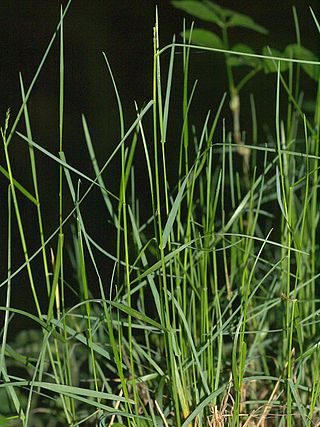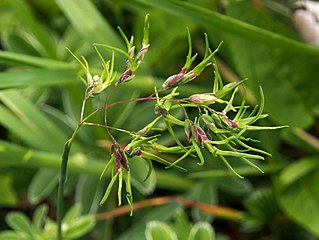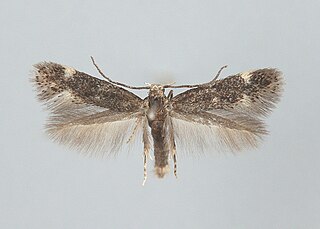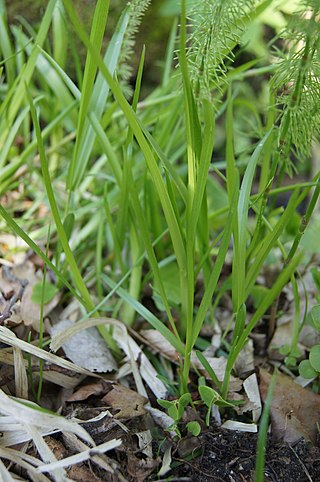
Forage is a plant material eaten by grazing livestock. Historically, the term forage has meant only plants eaten by the animals directly as pasture, crop residue, or immature cereal crops, but it is also used more loosely to include similar plants cut for fodder and carried to the animals, especially as hay or silage.

Briza is a genus of annual and perennial plants in the grass family, native to northern temperate regions of Eurasia, North Africa, and certain islands in the Atlantic.

Poa is a genus of about 570 species of grasses, native to the temperate regions of both hemispheres. Common names include meadow-grass, bluegrass, tussock, and speargrass. Poa is Greek for 'fodder'. Poa are members of the subfamily Pooideae of the family Poaceae.

Chamaerops is a genus of flowering plants in the family Arecaceae. It contains only one species, Chamaerops humilis, variously called European fan palm or the Mediterranean dwarf palm. It is one of the most cold-hardy palms and is used in landscaping in temperate climates.

Poa nemoralis, the wood bluegrass, is a perennial plant in the family Poaceae. The late-growing grass is fairly nutritious for livestock, which feed on it in the autumn, and it is used as a lawn grass for shady situations.
Poa triodioides, synonyms including Austrofestuca littoralis, is a species of flowering plant in the grass family Poaceae, native to southwestern and southeastern Australia and to New Zealand.

Catabrosa is a small but widespread genus of plants in the grass family native to temperate areas of Eurasia, the Americas, and a few places in Africa.

Poa alpina, commonly known as alpine meadow-grass or alpine bluegrass, is a species of grass with a primarily holarctic distribution.

Distichlis is a genus of American and Australian plants in the grass family. Plants in this genus are dioecious, have rhizomes or stolons, and have conspicuously distichous leaves.

Elachista humilis is a moth of the family Elachistidae found in most of Europe.

Poa foliosa is a species of tussock grass commonly known as muttonbird poa. It is native to the subantarctic islands of New Zealand and Australia.

Elachista chrysodesmella is a moth of the family Elachistidae. It is found from Sweden to the Iberian Peninsula, Italy and Romania and from France to Russia and Ukraine.
Aletes humilis is a species of flowering plant in the carrot family known by the common names Colorado aletes and Larimer aletes. It is native to Colorado in the United States; it is also known from Wyoming, but there are no recent collections there.
Poa fordeana is a grass native to Australia which is found in New South Wales, Victoria, South Australia and Queensland.

Poa drummondiana is a perennial herb in the Poaceae family.

Poa remota is a species of grass in the family Poaceae.

Poa angustifolia is a species of flowering plant belonging to the family Poaceae.

Ptilotus humilis is an annual herb in the Amaranthaceae family, native to Western Australia. It was first described as Trichinium humile by Nees von Esenbeck in 1845 but was transferred to the genus, Ptilotus, by Ferdinand von Mueller in 1868.

Poa cita, commonly known as the silver tussock, or wī, which is also a Māori name, or by the Māori name pātītī, is a grass of the family Poaceae that is endemic to New Zealand. Poa cita was described and named by Elizabeth Edgar in 1986, having previously being named Poa caespitosa.

Malesherbia humilis is an annual herb that grows in the subtropics of northern and central Chile to Argentina.
















